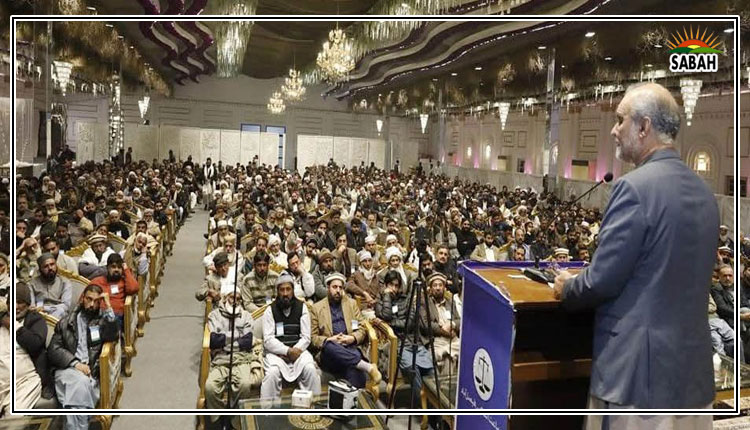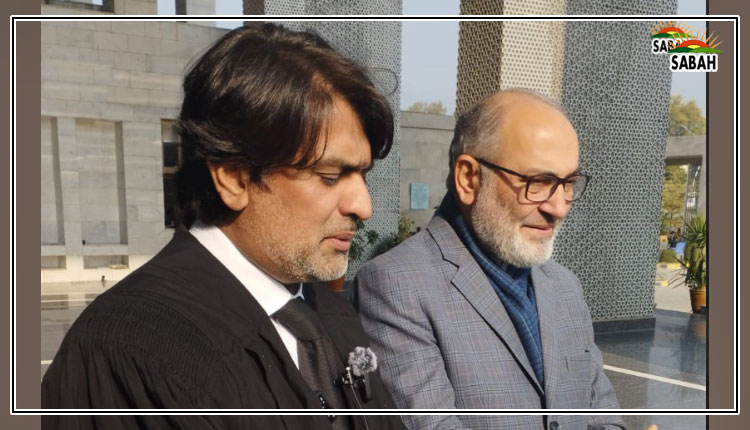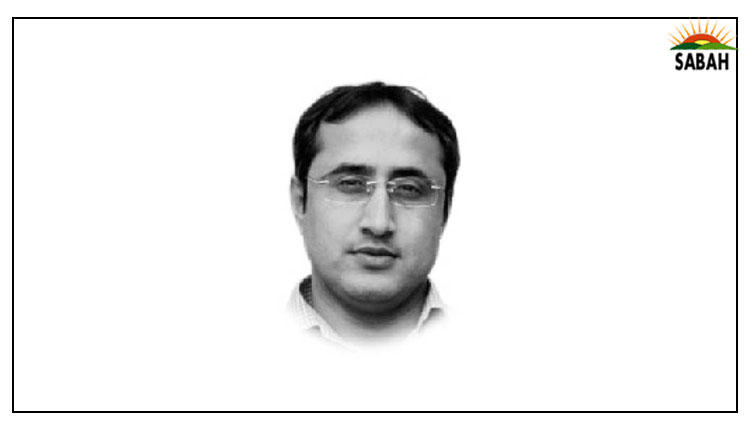Reforming prison culture by Dr Shuja Ahmed Mahesar
Maintaining social control through enforcing law and order has become the key to sustainable economic progress in our country. Safety and security of people can be ensured by mitigating criminal behaviour generated by segregation, social exclusion and conflicts as an outcome of extreme poverty, social disparity and criminalisation of the poor in urban society.
Public order handling, as per law and police rules, is the responsibility of the district magistracy and police. However, primarily it is the duty of police to protect lives of citizens. Police is supposed to work as per law to represent the will of state and take authoritative actions by using coercive and non-coercive methods for enforcement of law. They are expected to conduct quit-crime activities with altruistic motives through personal optimism and community-oriented service. However, rising public demand for accountability of police officials is based on the argument that policing practices are not adequately governed by laws and rules. Consequently, flagrant abuse of power by police officials and prison personnel is exacerbating. Moreover, instead of taking responsibility, prison administration shifts blame to other institutions for appalling conditions of prison infrastructure which remains unchanged partly because of inadequate funding and mainly because of the absence of check and balance and the lack of separation of powers between police and magistracy for preventing duality of their duties which causes abuse of power and incompetence.
Because of weak crime investigation and poor prosecution, prisons across the country are overcrowded and are unable to serve their purpose. Currently 114 jails are accommodating more than 77,000 prisoners, much beyond their capacity of 50,000. This soaring number can be significantly decreased by developing system of scrutinising cases based on principle of fair chance of conviction at prosecution level. Absence of this system causes increase in population of prisons, and they are rapidly becoming nurseries of crime due to mingling of all types of criminals. In prisons new inmates are exploited, belittled and humiliated by lords of convicted criminal gangs and are forced to become professional criminals by adopting felonious behaviour resulting from prison violence. Free mixing of incarcerated criminals also affects their mental and physical health. Some of them are getting infected with contagious diseases in prisons where medical facilities are not enough to deal with healthcare situation. Further, the criminals with mental disorders and psychological tribulations including depression are unattended. Most of prisons also paint dismal picture of deprivation caused by chronic scarcity of food and pure drinking water.
Prison police uses repressive techniques rather than correctional methods to combat crime. Thus, the purpose of policing and their own interests overlap and create clash in values of prison culture. Blurring the difference between polite and non-polite policing affects the overall performance of Prisonand Correction services in providing education and skill to inmates for their rehabilitation and integration in society. Keeping in view globally accepted standards, efforts must be taken to provide secure environment to delinquents so that they can develop good habits and build their character for social readjustment in a dignified manner. Police officials working at prisons must be trained to demonstrate professionalism in dealing with offenders and to display decent behaviour which can play a vital role in preventing negative feelings and shaping positive attitudes among offenders to reflect improvement of prison culture.
Female inmates and juvenile prisoners are facing various forms of injustice and the violations of their fundamental rights have quadrupled. They are unable to access justice and exercise their right to defend themselves against illegal detentions. They are deprived of legal aid and moral support mainly because of their inability to pay lawyer’s fees and to pay little fines for minor crimes. Thus, criminal justice system should be revamped to set free those who are languishing in prisons mainly due to above reasons. It should ensure the protection of inviolable dignity of human being under any circumstances and prevent them from being demoralised. Manipulation of First Information Report (FIR) pushes most of the adolescents in juvenile prisons to suffer from familial cruelty. While facing charges under Section 302 of PPC they are being tried in a bid to save their relatives who are otherwise found guilty of committing crime and liable to be punished for their acts of abetment. In most cases innocents are put behind bars and real criminals are exonerated by courts of law due to unavailable technical evidence which can be ensured by effective use of technology. Thus, FIR system must be reformed, and use of technology must be ensured to scrutinise cases by experts to retain only those which have fair chance of conviction, and the rest of the cases should be dismissed at initial stage. This will reduce the magnitude of pendency and burden on judiciary as well as prisons.
Inside the prison criminal’s profiling based on conviction, nature of crime: cognizable or non-cognizable offence, physical and mental conditions of offender, motive to commit crime and character of offender can help prison administration to prioritise those offenders who need more care and attention for channelising their energies in positive direction. Outside the prisons, a plausible space should be provided for post-prison socialisation and rehabilitation of inmates. Mapping of vulnerable areas with higher incidence of urban crimes will justify the need for public spaces including libraries community parks, sport grounds and cultural clubs. Establishment of rehab centres with the help of philanthropists for providing literature about quitting crime, counseling and job training on voluntary basis will also be helpful to avoid reoffending. Further the equitable and horizontal distributions of resources can be more effective method of dealing with poverty, hunger, unemployment and homelessness which provide breeding grounds for crime.
Prison leadership needs to set out the institution’s vision and involve itself in strategic planning and management of prison facilities. It must devote its energies to transform prisons and correction schools through far-reaching reforms and to convert traditional outlook of lockups into technologically smart prisons with digital surveillance facilities for achieving goal of curing crime as a mental and emotional illness caused by socio-economic and psychological factors. However, use of schooling as reformative approach to prevent prisoners from their recidivism cannot work until the anachronistic system of prisons is reformed. Instead of making sporadic attempts, a comprehensive reform must be introduced to depoliticise prison administration. Moreover, amendment in prison manuals and decolonisation of existing laws should be initiated to replace outdated retributive laws by reformative laws to guarantee sustainable peace in society.
Courtesy













